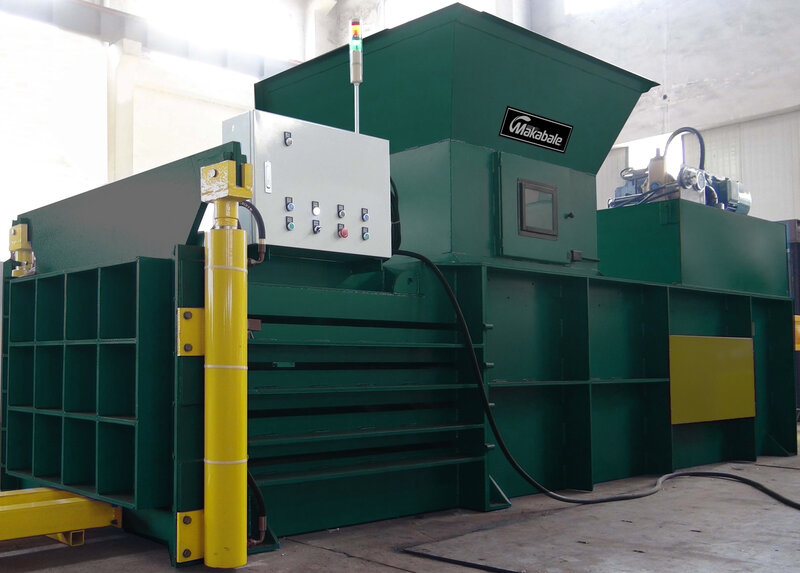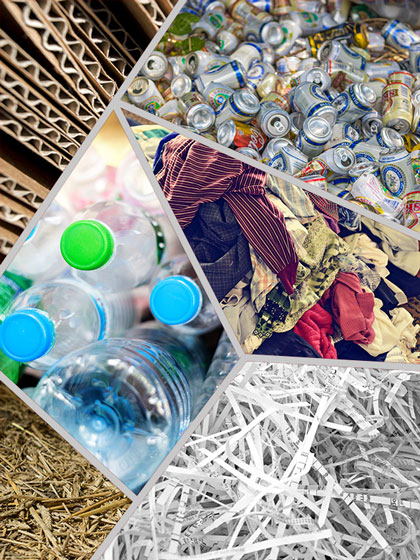
If you are in the business of recycling, chances are that you will need a baler at some point. Balers are machines that compress materials into tight bales, making them easier to handle, store, and ship. This can save space and cost and generate revenue for you. But with so many different types of recycling balers on the market, it can be hard to know which one is right for your business. In this article, we will go over all the things you need to consider before purchasing a baler so that you can make the best decision for your business.
1. Type of Baling Material
The first thing you need to consider when purchasing a recycling baler is the type of material you will be baling. Balers come in a variety of shapes and sizes, and each is designed for a specific type of material. For example, there are cardboard balers, plastic balers, textile balers, wood shaving balers, etc. If you are unsure about which type of baling machine you need, you can always consult with a recycling expert to help you make the best decision.
2. Budget
The next thing to consider is your budget. Balers can range in price from a few thousand dollars to hundreds of thousands of dollars. It is important to know how much you can afford to spend before starting your search. You should also keep in mind that the more features a baler has, the more expensive it will be.
3. Safety for the Operator
Another important factor to consider is safety. When you are purchasing a baler, it is important to make sure that the one you purchase has adequate safety features. Look for a baler machine with an emergency stop button, interlock doors, as well as safety guards on all moving parts. You should also make sure that the company you purchase from offers training for your operators.
4. Bale Size
Different baler chamber size can make different bale size, from small size to mill size bales. You need to decide what size you would like to make. Usually, small size bales will get a lower price compared with mill size bales because waste collectors need to re-bale the small bales into a mill size bale to optimize the transportation. Mill size bales would be more popular with recyclers.
5. Production Capacity
Another thing to consider is production capacity. Balers are available in a variety of sizes, from small units that can handle a few hundred pounds of material per day to large industrial units that can handle tons of material per day. Make sure to choose a baling machine that can keep up with your production needs.
6. Available Space
Balers can vary greatly in size, so it is important to make sure you have enough space for the one you purchase. You should consider whether you need a vertical or horizontal unit. Vertical balers are smaller on floor area, but they have a relatively lower production capacity. Horizontal balers are usually larger and require more floor space, especially when they are used in combination with feeding conveyor, but they are more productive.
7. Type of Packaging
Balers can be used to package materials in a variety of ways. For example, some of them have the ability to create bales that are wrapped in plastic or cloth for particular materials like clothing, animal fiber and animal feed or bedding, while others simply compress the material into a tight bale like cardboard, plastic and cans. Choose the type of baler that best suits your needs.
8. Available Power Supply
Power supply in different locations can be different. You need to find out your facility is available with single phase or three phase and what voltage? Normally, most recycling balers come with three phase power supply, but there are also very small and less powerful units can be powered with single phase.
9. Supplier's Experience
When looking for a supplier, it is important to find one with experience in this industry. This way, you can be sure that they know their products and can help you find the best baler for your needs. A good supplier will also be able to offer service and support after the sale.
10. After-sales Service and Technical Support
Once you purchase a baler, it is important to make sure you have access to after-sales service and technical support. This way, if you have any problems with your machine, you can get help quickly. A good supplier should offer training for your operators and be available to answer any questions you may have.
11. Baler Warranty
Balers are a significant investment, so it is important to make sure they come with a warranty. This will protect you in case of any problems with the machine. Most baling machines come with a one-year warranty, but some suppliers offer extended warranties for an additional cost.
Purchasing a baler is a big decision, but if you keep these factors in mind, you can be sure to find the best machine for your needs. Balers are a valuable addition to any recycling operation and can help you save time, money, and space.
